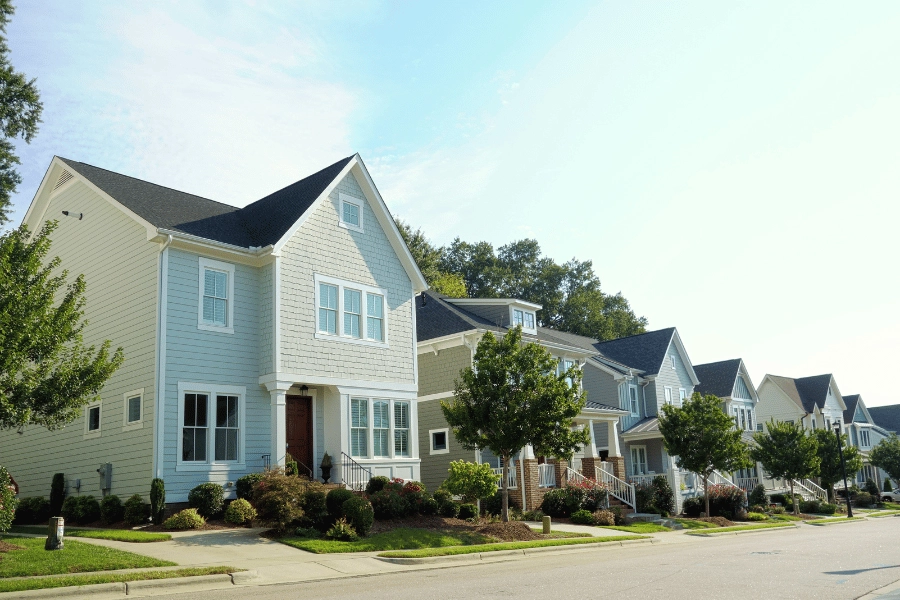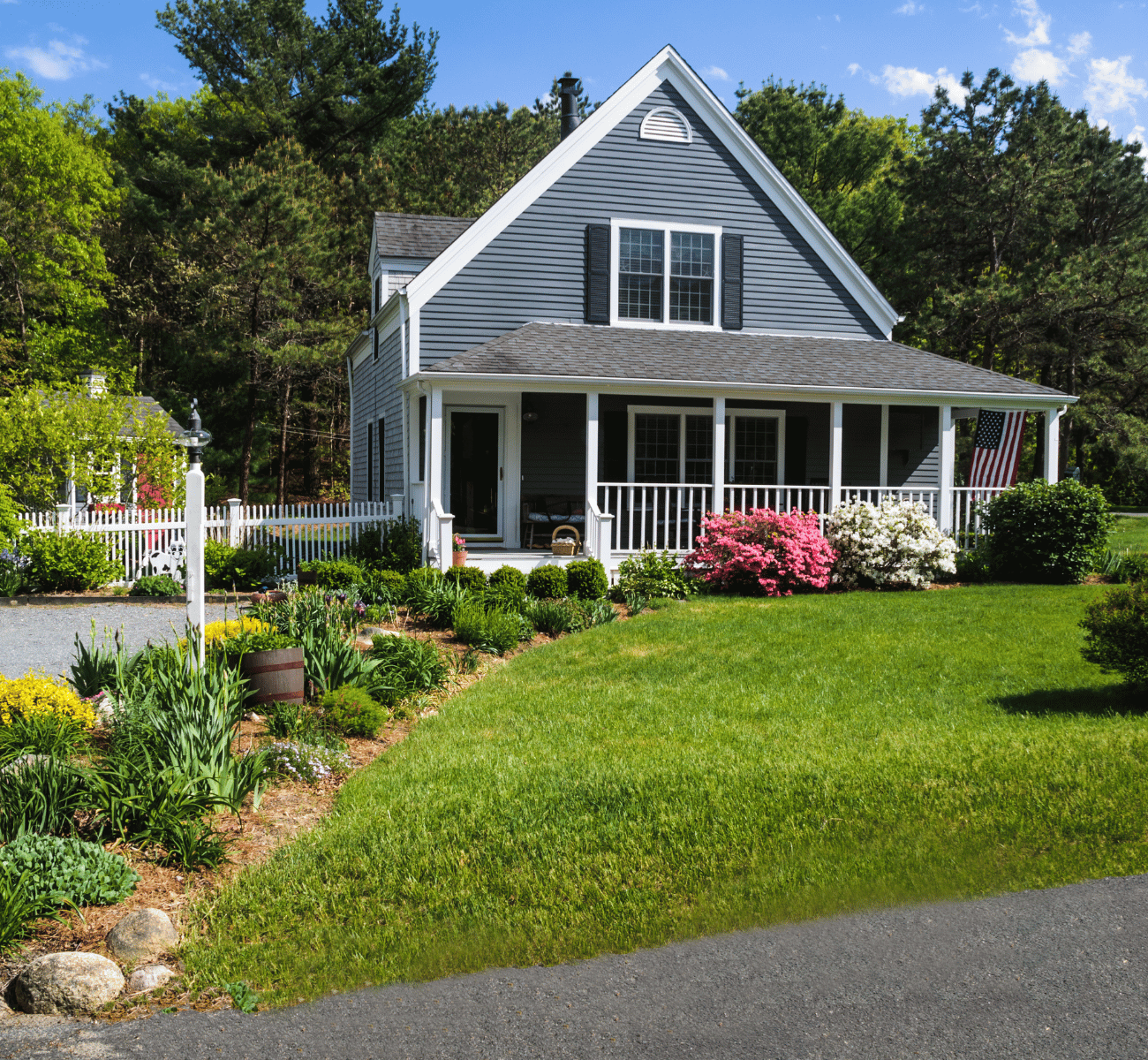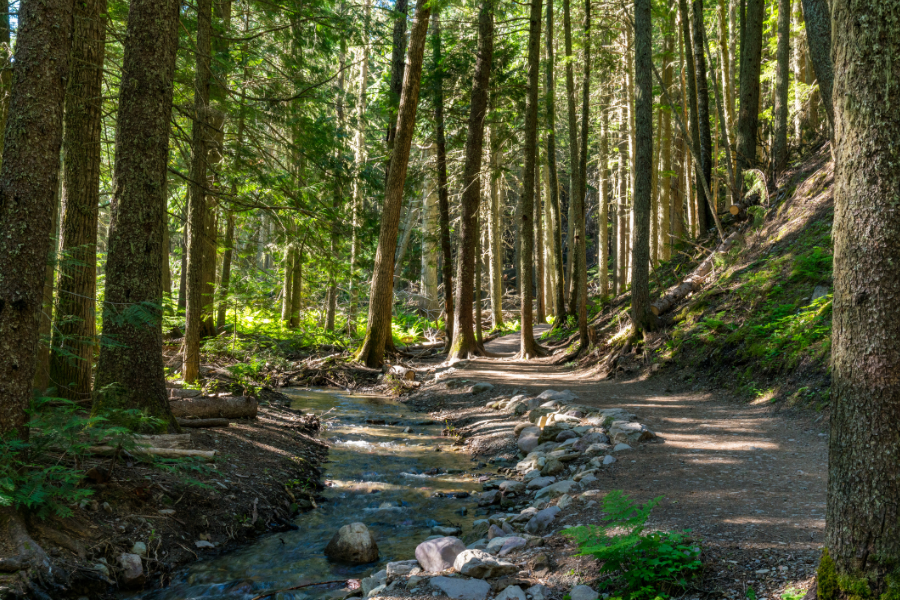Top Gardening Statistics and Trends
What are the top gardening statistics and trends in 2025? Let's explore these top gardening trends for homebuyers!
The gardening world is experiencing a remarkable transformation that's reshaping both how we cultivate our outdoor spaces and what homebuyers prioritize when searching for their dream property.
With the global gardening market valued at over $150 billion and growing at 5% annually, gardening has evolved from a simple hobby into a lifestyle choice that significantly impacts home values and buyer preferences.
About 55% of U.S. households have a garden; this translates to about 71.5 million hardening households and 185.9 million people. The United States is one of the top three gardening countries.
Recent studies reveal that professional landscaping and well-maintained gardens can boost property resale values by 10-20%, making garden potential a crucial factor in real estate decisions.
Even properties without existing gardens can be excellent investments if they have the right conditions such as good soil, appropriate sun exposure, adequate space, and supportive neighborhood regulations.
Whether you are a seasoned green thumb or just beginning to imagine your perfect garden sanctuary, understanding these emerging trends can help you make smarter home-buying decisions in Raleigh while creating outdoor spaces that enhance both your quality of life and property value.
Here are the top gardening statistics and trends for 2025.
1. Mediterranean Gardens
Mediterranean-style gardens are surging in popularity as homeowners seek water-wise landscaping that doesn't sacrifice beauty. These gardens feature drought-tolerant plants like lavender, rosemary, olive trees, and ornamental grasses, combined with hardscaping elements like stone pathways and gravel mulch.
The Mediterranean garden is a perfect solution for fast-draining soils, arid climates, and hot sunny regions where there is naturally little rainfall. With lower water usage, this type of garden is predicted to be a popular option for these locations.
Mediterranean gardens are characterized by shady retreats to escape the blazing summer heat, cooling water features, outdoor seating areas, drought-tolerant plants, and gravel to replace the water thirty lawns.
Properties with established Mediterranean plantings or the bone structure for this style (stone walls, terraced slopes, existing olive or citrus trees) offer immediate value.
The low-maintenance nature of these gardens makes them perfect for busy homeowners while providing year-round structure and seasonal interest.
Warm, earthy colors like terracotta, ochre, coral, and green are perfect for the color palette of a Mediterranean garden. Mediterranean gardens thrive in areas with existing stone features, established trees, or properties where water conservation is a priority.
Trees with low water usage and shrubs for this type of garden include:
- Acacia
- Olives
- Palms
- Chinsease Pittache
- Citrus Trees
- Sumac
- Bougainvillea
- Juniper
- Cypress
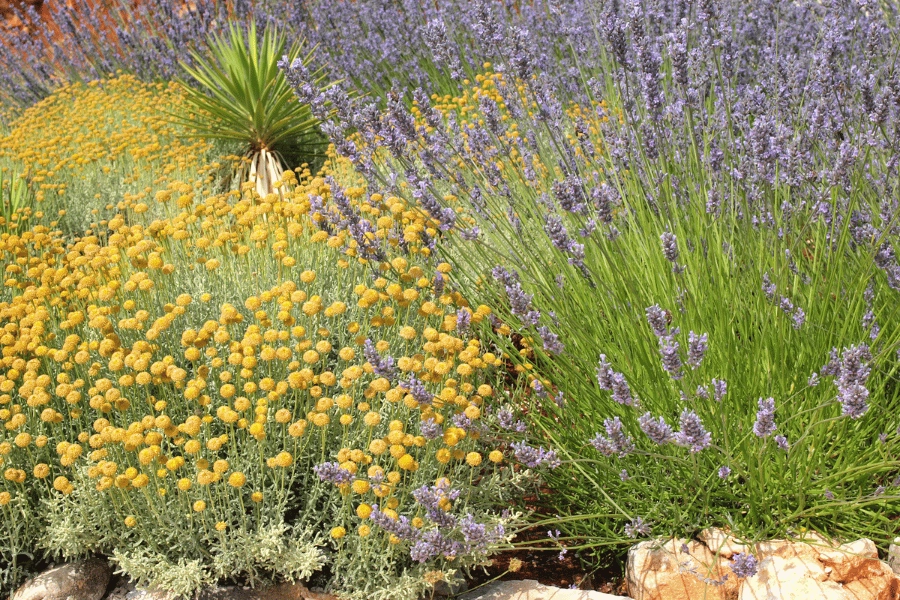
2. Micro-Homesteading
Urban and suburban homeowners are embracing micro-homesteading, creating self-sufficient mini-farms even on small lots. This includes compact vegetable gardens, small-scale composting systems, rain water collection, and even backyard chickens where permitted.
Many people are choosing to use Micro-Homestead to provide food for their families naturally. This is a budget-friendly option for people who grow their food.
Fresh products, medicinal herbs, dwarf fruit trees, fruiting shrubs, edible landscaping, and high-density planting techniques combine to make the landscape work for you.
Properties with existing garden infrastructure (raised beds, compost areas, garden sheds, or chicken coops) can save thousands in setup costs. Even homes with good "bones" for micro-homesteading offer tremendous potential for creating productive outdoor spaces.
3. Food Forests
Food forests represent the ultimate in sustainable gardening, creating multi-layered ecosystems that produce food while requiring minimal maintenance after establishment. These systems combine fruit and nut trees, berry bushes, perennial vegetables, and beneficial companion plants.
Food forests support the ecosystem and connect communities all in one and are a popular way to keep the world around us thriving. Homes with established fruit trees, berry patches, or existing food forest elements represent significant value.
Properties with natural water features, varying sun exposure throughout the day, and rich, undisturbed soil offer the best foundation for food forest development.
Many cities and neighborhoods are starting community gardens that are free for people to use. This type of garden benefits everyone with fresh produce and is an excellent way of crowd-sourcing.
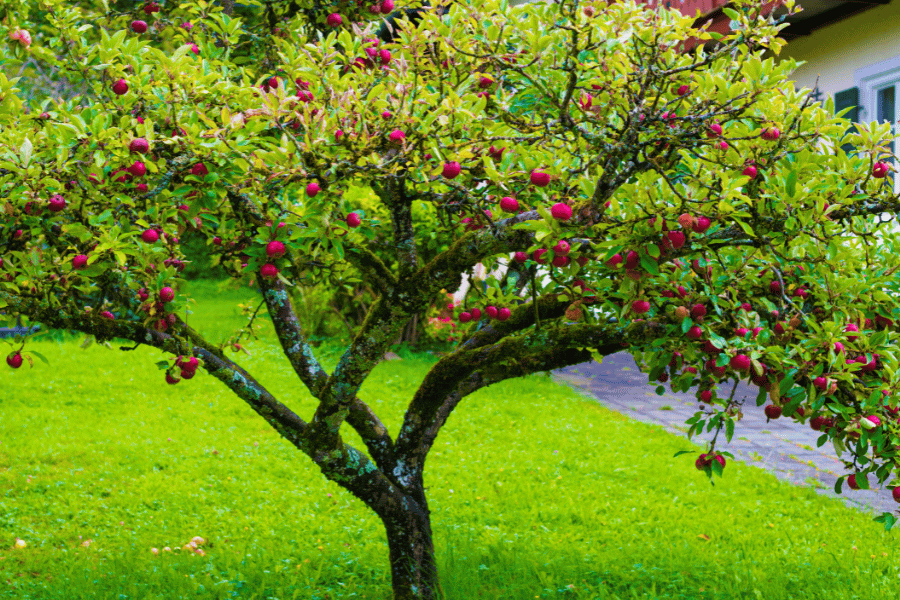
4. Minimalist Gardens
Minimalist garden design emphasizes clean lines, limited plant palettes, and architectural elements. These gardens focus on quality over quantity, featuring carefully selected plants with strong structural presence and year-round appeal.
Minimalist gardens may seem plain and boring, but they are simple and stylish and can be a perfect option for family gardens. When designing a minimalist garden, many think about neutral colors to add to the calming and organized design of the minimalist idea.
Minimalist gardens typically require less maintenance and lower ongoing costs while providing sophisticated curb appeal. Properties with existing minimalist elements or the potential for this style often appeal to a broad range of buyers, supporting property values.
If you are a first-time homebuyer looking at properties, look at homes with existing hardscaping, clean architectural lines, and properties where the landscape complements the home's design.
Properties with established structural plants (ornamental grasses, architectural shrubs, or specimen trees) provide excellent foundations.
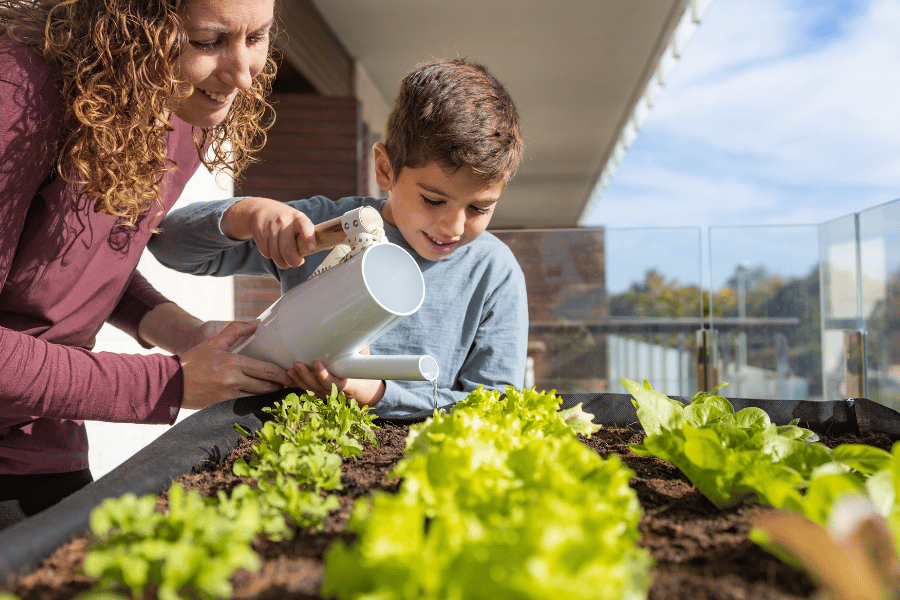
5. Victorian Garden Revival
Victorian-style gardens are experiencing a renaissance, featuring cottage garden plants, formal structures, and romantic elements like arbors, gazebos, and ornate planters. These gardens celebrate abundance and seasonal succession planting.
Popular from the Victorian era, gardening has undergone many changes that have led to a rise in popularity. In a Victorian-style garden, seasonal plants are arranged in patterns, paths are made out of tiles, vines drape over windows and arches, croquet lawns are present, and many colors are used throughout.
Properties with Victorian garden potential often feature established infrastructure that's expensive to create from scratch. Mature climbing roses, established perennial borders, or existing garden structures add immediate value and character.
Victorian gardens shine in properties with period architecture, established mature trees for structure, and space for both formal and informal garden rooms. Homes with pergolas, garden walls, or architectural features that complement this romantic style, are perfect for this garden type.
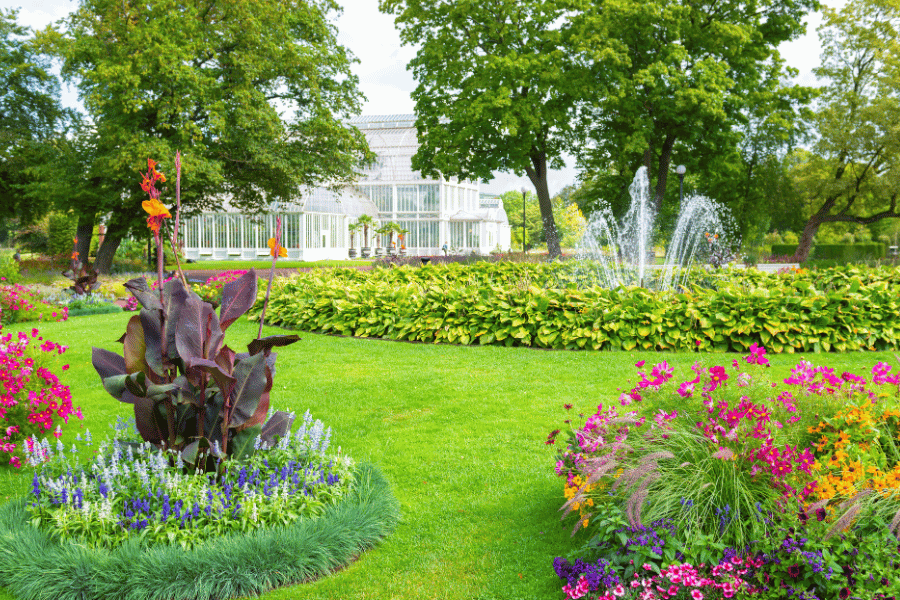
6. Native Plant Ecostystems
Homeowners increasingly prioritize native plants that support local ecosystems, require less water and maintenance, and provide habitat for beneficial insects and birds. This trend aligns with growing environmental consciousness and desire for low-maintenance landscapes.
Native plant gardens typically require 60% to 80% less water and maintenance than traditional landscapes once established. Properties with existing native plants or natural areas represent significant savings in landscape establishment costs and ongoing maintenance.
Homes with varied sun exposure, natural drainage patterns, and soil that hasn't been heavily disturbed by construction are perfect for native plant gardens.
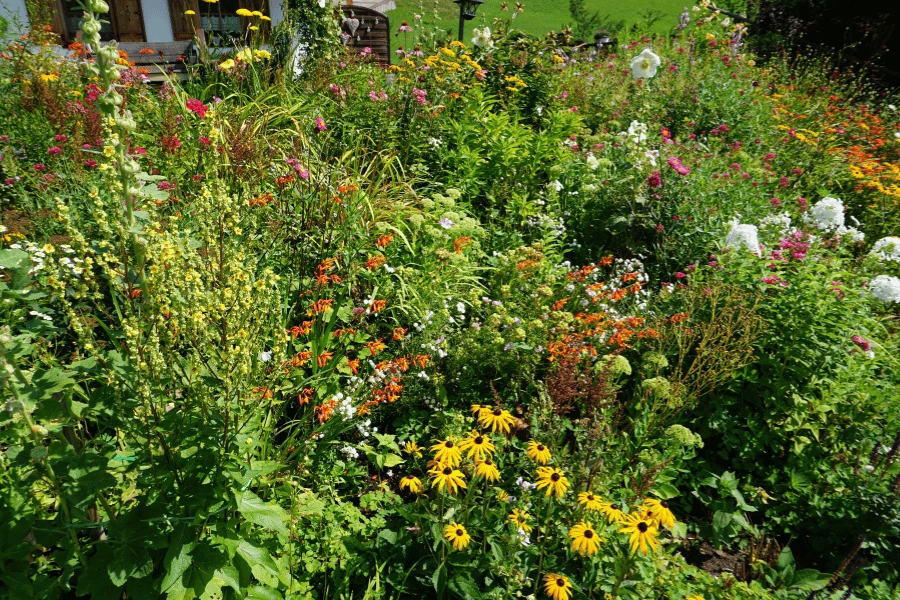
7. Smart Garden Technology Integration
Technology integration in gardens includes automated irrigation systems, soil monitoring sensors, weather-responsive watering systems, and garden management apps. This trend appeals to busy homeowners who want productive gardens without constant maintenance.
Properties with existing irrigation systems or smart garden technology represent significant value. Professional irrigation installation can cost $1,638 to $3,580. Even basic infrastructure like underground electrical lines for outdoor outlets provides flexibility for future technology integration.
When searching for a home, prioritize homes with existing irrigation infrastructure, electrical access throughout the landscape, and properties where smart systems can be easily integrated. Look for homes with newer electrical systems that can support additional outdoor technology.
Methodology
Data was soucred from Angi, Calscape, and Yahoo Finance to determine the top gardening statistics and trends in 2025.
FAQs
Is gardening worth it financially?
Growing your own food is a healthy and easy way to save money and enjoy fresh produce at home. If it is done correctly, you can use a small area to grow fruits and veggies while keeping your grocery bill simple.
What is a popular gardening trend?
One of the most popular trends for gardening is using vibrant colors throughout. This trend anticipates more terrariums, survivalist gardens, and foilage with bright variegation.
Which age group gardens the most?
Many studies have shown that 68% of interested people aged 18-34 are considered garden lovers, while about 24% between 35-44 said that they love to garden. Over the past few years, many more age groups have become gardeners.
Does a garden improve home value?
Many studies have shown that a well-designed and maintained landscape can increase the value of your home by about 10-12%. From first impressions and curb appeal, if you want to make your home more attractive, having beautiful landscaping is a simple way to do so.
.png)
Top Gardening Statistics and Trends [2025] - The Bottom Line
As gardening continues to evolve in 2025, the intersection of sustainable practices, technology integration, and lifestyle prioritization creates unique opportunities for strategic homebuyers.
Properties that accommodate these trending garden styles don't just offer outdoor enjoyment, they represent smart investments in sustainability, food security, and long-term property value.
The garden industry has seen massive growth since the pandemic, and the trends have grown in immense popularity over the past couple of years. Most gardening trends are predicted to stay, while others are more likely to change.
Whether you are drawn to the water-wise elegance of Mediterranean gardens, the productivity of food forests, or the clean sophistication of minimalist design, choosing a property with garden potential ensures your outdoor space can grow with your interests and lifestyle needs.
The garden trends of 2025 reflect our deeper connection to the natural world and desire for outdoor spaces that serve multiple purposes including beauty, productivity, sustainability, and sanctuary.
By understanding these trends and their property implications, you can make home-buying decisions that support both your gardening aspirations and your long-term investment goals.
Are you ready to find your dream home with garden potential that matches your lifestyle? Contact the real estate specialists at Raleigh Realty today to explore properties that can grow with your gardening dreams.
![Top 7 Gardening Statistics and Trends [2025]](https://raleighrealty.com/rr-images/uploads/blogs/1755306504952-676028264-Gardening-Statistics.png)
